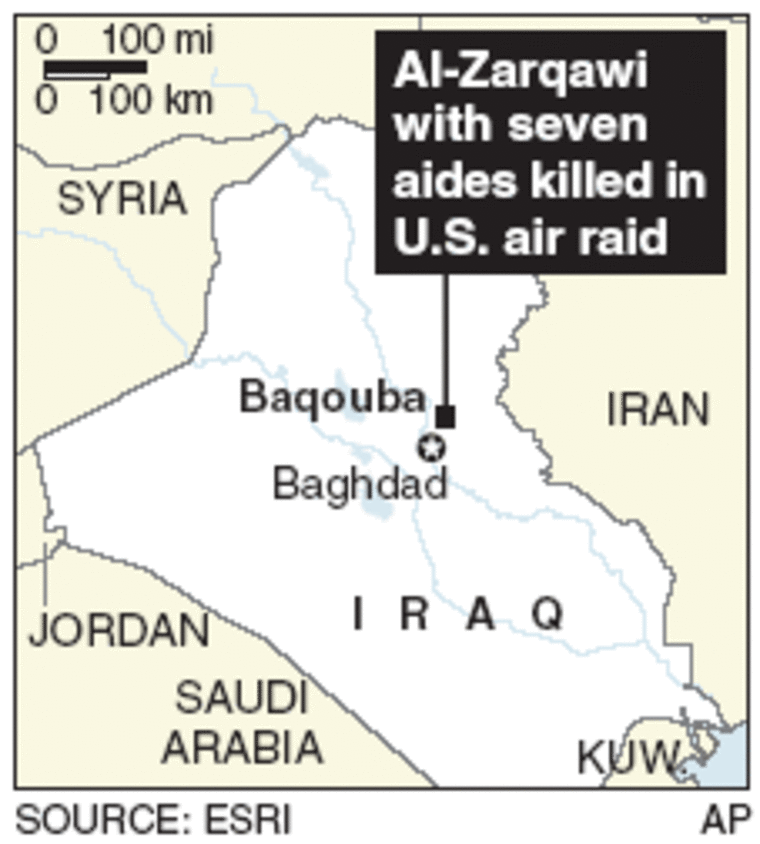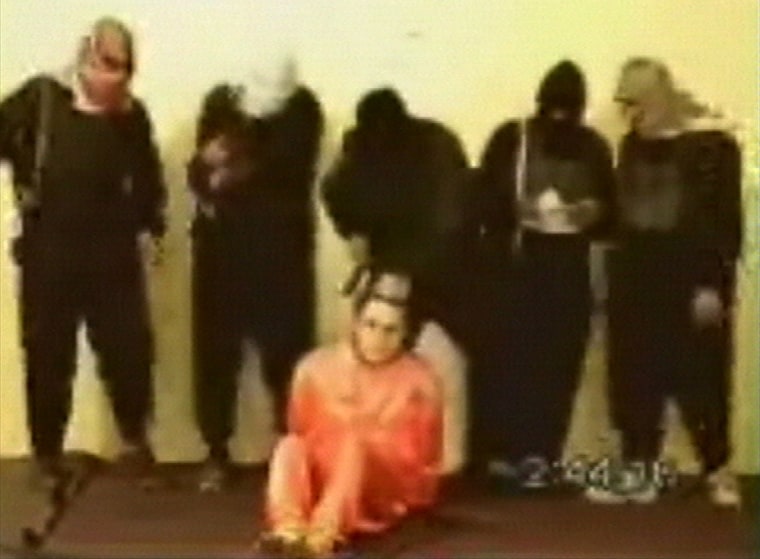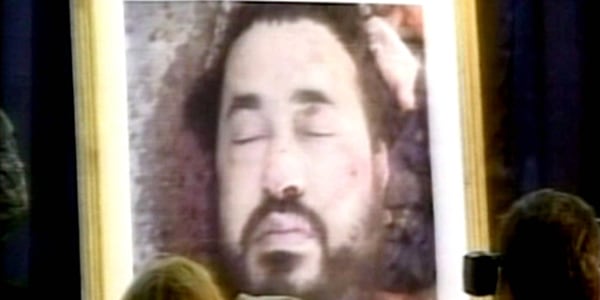The death of Abu Musab al-Zarqawi may provide a much-needed morale boost to Iraq’s new government. But it is unlikely to end the country’s brutal insurgency.
Instead, the death of the most visible and feared terror leader in Iraq may give the United States and its Iraqi allies simply another brief chance to build some momentum toward stability and away from violence.
If the effort stumbles, then al-Zarqawi’s death may in the end have no more impact on the insurgency than the capture of Saddam Hussein.
Announcement couched in caution
The White House seemed mindful of that Thursday, refraining from calling the killing a breakthrough but also moving quickly to try to capitalize on a clear victory after weeks of mounting death tolls.
President Bush warned “we can expect sectarian violence to continue,” but he also announced that top U.S. officials would meet at Camp David to map out America’s next steps. Of the militants, Defense Secretary Donald H. Rumsfeld said the death would only “slow them down.”
Yet there is no question that al-Zarqawi’s killing was a huge symbolic gain. Because of that, it could provide the Bush administration and the new Iraqi government with an opportunity to seize the initiative from suicide bombers, sectarian killers and other extremists.
With al-Zarqawi out of the way and the new government finally in place, some Sunni Arab leaders may be emboldened to resume a dialogue they started last fall — a dialogue that was sunk by al-Zarqawi’s al Qaida in Iraq.
One reason it’s so hard to predict what might happen is that it’s never been clear what role the Jordanian-born terrorist actually played.
U.S. officials were quick to draw attention to the brutality of al-Zarqawi and his followers — from their slaughter of Shiite civilians to their beheading of foreign hostages, captured on video.
Yet that may have exaggerated al-Zarqawi’s relative importance, leading to an impression, deemed incorrect by most experts, that the entire insurgency was orchestrated and directed by a single figure.
In fact, more than a dozen Sunni Arab insurgent groups are believed to be operating in Iraq. Several employ tactics just as ruthless as al-Zarqawi but do not share his goal of re-establishing the ancient Islamic caliphate.
Workings of insurgency unknown
Whether these organizations operate entirely on their own or take direction from a central leader has long been the subject of intense debate.
“Most of the insurgency will not be affected, because al-Qaida is a highly visible and extraordinarily brutal cadre within a much larger group of different insurgent movements,” said former Pentagon analyst Anthony Cordesman.
“These groups will not be directly affected by Zarqawi’s death and could be strengthened if his death weakens al-Qaida,” he said.
French terrorism expert Dominique Thomas speculated that al-Qaida might actually step up the pace of attacks just to prove it has survived its leader.
“While Zarqawi’s death is a symbolic gain for the Americans, I don’t think we’ll see a real change on the ground,” Thomas said.

Yet most agree the death could prompt another U.S. and Iraqi effort to try to lure Sunni tribal leaders in Iraq’s Anbar province toward a political compromise and away from the insurgency.
Last November, the Americans achieved a breakthrough by persuading those tribal leaders to establish a dialogue with U.S. and Iraqi government officials. As a first step, community leaders dropped their objection to allowing Sunnis to join the police and army.
But those moves were undermined by al-Qaida in Iraq, which assassinated key sheiks.
Pressure on Iraqi government
If another effort is now made — with al-Zarqawi out of the way — much will depend on the new Iraqi government’s ability to live up to its promises to build a political system that includes all groups, including disaffected Sunnis.
The release of about 2,500 detainees, which began this week, appears aimed at bolstering Sunni confidence in the new government, as does the appointment of new defense and interior ministers.
“Zarqawi’s death will not in itself end the violence in Iraq,” said the U.S. ambassador to Iraq, Zalmay Khalilzad. “But it is an important step in the right direction.”

